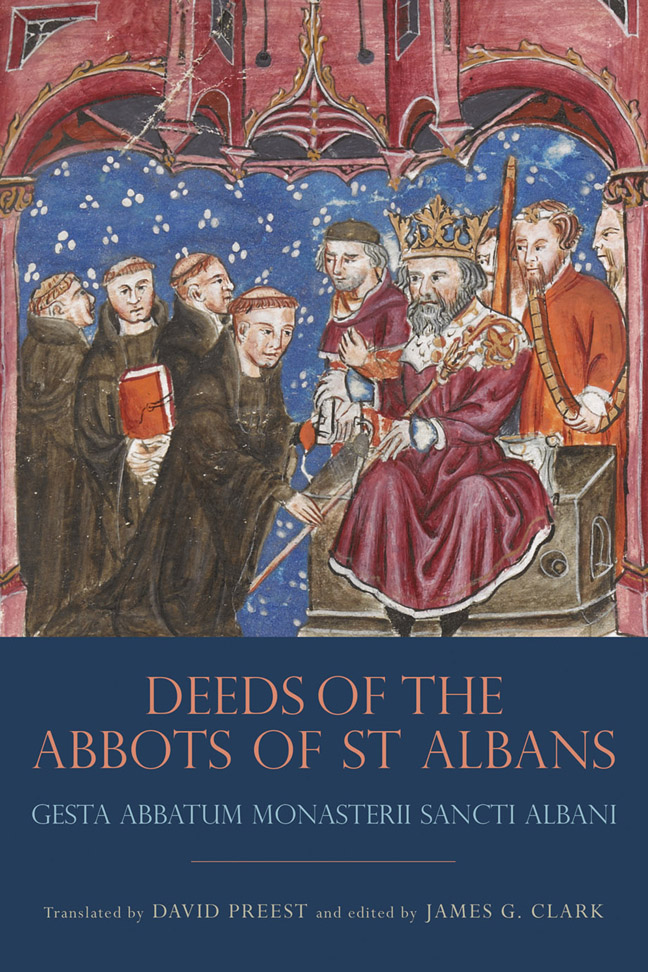Book contents
- Frontmatter
- Contents
- List of Illustrations
- Acknowledgements
- List of Abbreviations
- Introduction
- The Translation and its Sources
- The Deeds of the Abbots of St Albans
- Appendix A Thirteenth-Century Précis of the Deeds of the Abbots of St Albans: British Library, MS Cotton Vitellius a XX
- Bibliography
- Index
25 - John De Berkhamsted
Published online by Cambridge University Press: 17 February 2024
- Frontmatter
- Contents
- List of Illustrations
- Acknowledgements
- List of Abbreviations
- Introduction
- The Translation and its Sources
- The Deeds of the Abbots of St Albans
- Appendix A Thirteenth-Century Précis of the Deeds of the Abbots of St Albans: British Library, MS Cotton Vitellius a XX
- Bibliography
- Index
Summary
John III de Berkhamsted
The appointment of John de Berkhamsted, proposed for the abbacy, as the twentyfifth abbot of the monastery of St Albans.
How Malcolm, the king's escheator, after the death of the previous abbot of the monastery of St Albans, seized all its possessions and put them in the hands of the king, appointed his own officials and appropriated this monastery with unheard of extortions
After that man of famous memory, Roger de Norton, abbot of this church, entered upon the way of all flesh, Sir Malcolm de Harle, the king's escheator, hurried in haste to St Albans as soon as he heard about his death, entered the monastery and ruthlessly and impatiently seized control of each and every thing. He openly seized the keys of the abbot to all the offices, removed our men and appointed his own. He carefully scrutinised buildings, bedrooms and chambers and found many possessions – and he would like to have found still more – which he ordered to be written down on his list, and in this way he ejected others from any prolongation of power. He summoned the senior monks to his presence and questioned them threateningly about the treasury of the dead abbot. They replied that the abbot in his lifetime had distributed his money himself, just as he was well within his rights to do.
Since therefore the escheator himself continually claimed that the lord king had the same power over things temporal during an abbatial vacancy as the abbot had while alive, he took oaths of loyalty from the men of the barony. Although the abbot's servants were poor, he pitilessly pauperised them with taxes and hurried to pile up wealth of many kinds. For since they had not found money or gold in going around the monastery, the escheator was extremely pleased that he had found both there and in the manors stock, which our prior, John de Maryns, was afraid to have sold to a large extent, on account of the wrath of the king which he could have incurred. And although, while the abbot was still alive, the prior had respectfully enquired about paying a fine for the holding of a vacancy, the lord king was unwilling to grant him this favour. And so the favour which he was unable to obtain, he merely hoped to have obtained.
- Type
- Chapter
- Information
- The Deeds of the Abbots of St Albans<i>Gesta Abbatum Monasterii Sancti Albani</i>, pp. 543 - 575Publisher: Boydell & BrewerPrint publication year: 2019

